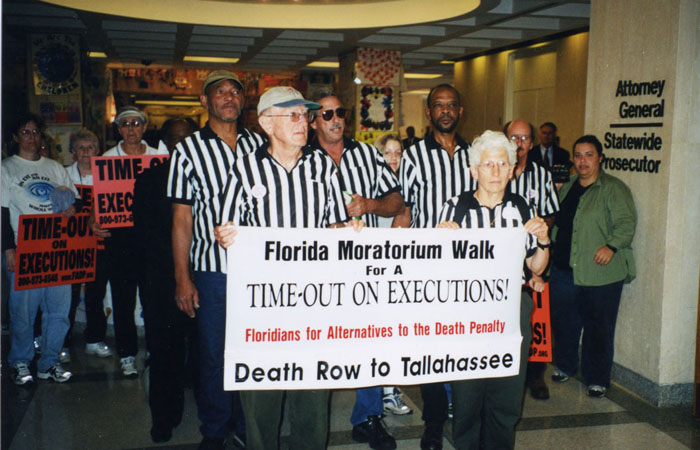Researchers, writers, activists, and records on capital punishment in the United States.
The National Death Penalty Archive (NDPA) is a partnership between the University at Albany Libraries and the Capital Punishment Research Initiative (CPRI) at the University's School of Criminal Justice. In 1999, researchers at the School of Criminal Justice formally established the CPRI. Its overarching goals were research and education -- initiate capital punishment research activities, facilitate collaboration among researchers, and make findings and information available to legal and criminal justice policymakers, practitioners, and the public. One of the original goals of the CPRI was to establish and maintain a collection of archival materials documenting the important history of capital punishment, and to provide resources for historical scholarship. This growing collection of archival materials is housed in the M.E. Grenander Department of Special Collections and Archives, which is located in the University's state of the art Science Library. Open since 1999, the new archival repository includes climate-controlled storage for more than 25,000 cubic feet. The following collections have been acquired for the NDPA through the collaborative efforts of the CPRI and the University Libraries; work is continuing to build this important link to the history of capital punishment in the United States.
